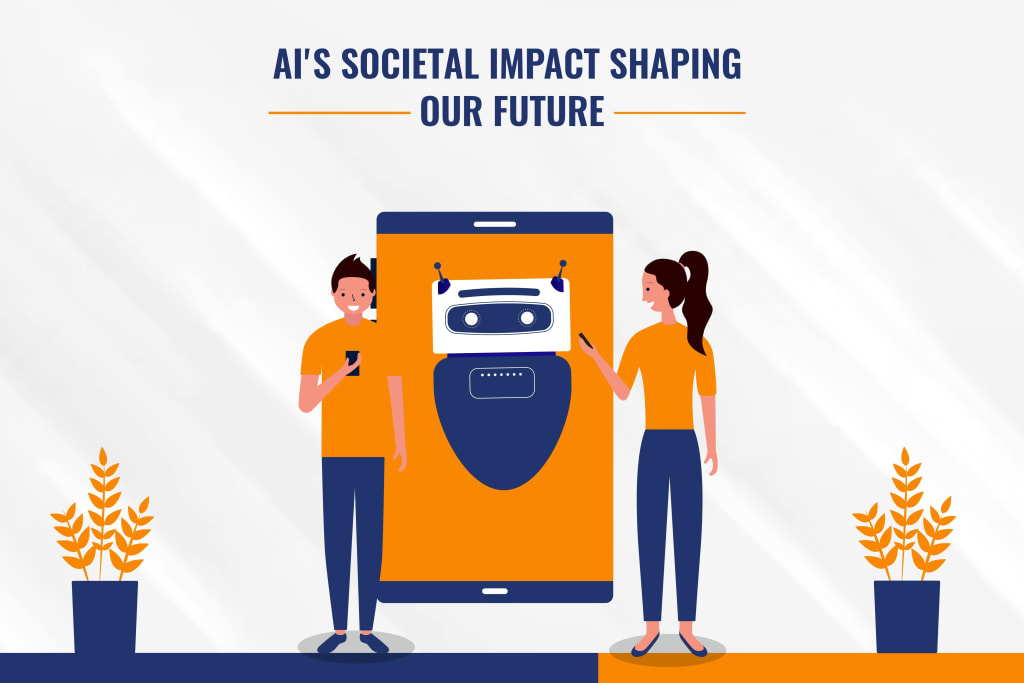AI's Societal Impact: Shaping Our Future
In this article, we will delve into the multifaceted impact of AI on society, focusing particularly on how it is shaping the future landscape in terms of technical training courses, programs, and corporate technical training.

Artificial Intelligence (AI) has become an integral part of our lives, revolutionizing various industries and reshaping the way we work, communicate, and live. From enhancing healthcare diagnostics to optimizing transportation systems, AI technologies have demonstrated immense potential to solve complex problems and improve efficiency.
However, as AI continues to advance, it brings forth both opportunities and challenges, particularly concerning its societal impact. In this blog, we will learn about the transformative effects of AI on society and explore how technical training programs play a crucial role in shaping our future in the age of AI.
The Evolution of AI and Its Societal Impact
The journey of AI dates to the mid-20th century when researchers began exploring the concept of intelligent machines. Over the decades, significant advancements in computing power, data availability, and algorithmic techniques have propelled AI from a theoretical concept to a practical reality. Today, AI systems can perform a myriad of tasks, ranging from natural language processing and image recognition to autonomous decision-making.
The societal impact of AI is profound and multifaceted. On one hand, AI holds the promise of driving economic growth, improving productivity, and fostering innovation across various sectors. For instance, in healthcare, AI-powered diagnostic tools can analyze medical images with unprecedented accuracy, aiding physicians in early disease detection and treatment planning. Similarly, in agriculture, AI-driven precision farming techniques enable farmers to optimize crop yields while minimizing resource wastage.
However, alongside its potential benefits, AI also presents significant societal challenges. One of the primary concerns revolves around the potential displacement of jobs due to automation. As AI systems automate routine tasks, certain professions may face the risk of obsolescence, leading to unemployment and socioeconomic disparities. Moreover, issues related to data privacy, algorithmic bias, and ethical implications of AI deployment raise complex ethical and regulatory questions that necessitate careful consideration.
The Role of Technical Training Programs in Harnessing AI's Potential
In navigating the opportunities and challenges posed by AI, technical training programs emerge as a critical intervention. These programs equip individuals with the skills and knowledge necessary to thrive in an AI-driven world while mitigating the risks associated with technological disruption. Technical courses, specifically tailored to AI and related disciplines, play a pivotal role in preparing the workforce for the jobs of the future.
Upskilling and Reskilling
Technical training courses offer opportunities for both upskilling and reskilling workers, enabling them to adapt to evolving job roles and technological advancements. For instance, individuals working in traditional manufacturing sectors may undergo training in robotics and automation to transition into roles that involve overseeing and maintaining AI-driven production systems.
Addressing Skill Gaps
AI technologies require a diverse set of skills, including programming, data analysis, machine learning, and domain-specific knowledge. Technical transformation programs bridge skill gaps by providing comprehensive education and hands-on experience in these areas. By empowering individuals with the requisite expertise, these programs foster innovation and competitiveness in the workforce.
Promoting Diversity and Inclusion
Inclusivity is paramount in ensuring that the benefits of AI are accessible to all segments of society. Technical training initiatives that prioritize diversity and inclusion facilitate participation from underrepresented groups, thereby promoting a more equitable distribution of opportunities in the AI landscape. By fostering a diverse talent pool, these programs drive creativity and perspective diversity, leading to more robust and inclusive AI solutions.
Ethical and Regulatory Education
Beyond technical skills, effective technical training courses incorporate modules on ethics, privacy, and regulatory compliance in AI development and deployment. By instilling a strong ethical foundation, these programs empower individuals to navigate complex ethical dilemmas and uphold responsible AI practices. Moreover, awareness of regulatory frameworks ensures adherence to legal requirements, fostering trust and accountability in AI-driven systems.
Continuous Learning and Adaptation
The rapid pace of technological innovation necessitates a culture of continuous learning and adaptation. Technical management training programs provide avenues for professionals to stay abreast of the latest developments in AI and related fields through ongoing education and skill updating. By fostering a learning mindset, these programs enable individuals to remain competitive and agile in a dynamic job market.
As a result of these training programs,
Employees develop proficiency in AI technologies, enabling them to identify opportunities for process optimization and automation within their respective domains.
The company establishes an internal AI task force comprising trained personnel responsible for spearheading AI initiatives, evaluating technology vendors, and implementing AI-driven solutions.
By harnessing AI for predictive maintenance, quality control, and demand forecasting, Company XYZ achieves significant improvements in operational efficiency, cost savings, and product quality.
The success of the AI initiatives enhances employee morale and fosters a culture of innovation and continuous improvement within the organization.
Final Thoughts
The societal impact of AI is profound and far-reaching, shaping our future in ways that demand proactive and collaborative responses. Technical programs play a crucial role in harnessing the potential of AI while addressing the challenges posed by technological disruption.
By equipping individuals with the requisite skills, knowledge, and ethical awareness, these programs empower the workforce to navigate the complexities of the AI landscape and drive positive outcomes for society. As we stand on the brink of an AI-powered future, investing in technical training initiatives emerges as a strategic imperative to ensure inclusive growth, sustainable development, and ethical AI deployment.
The transformative potential of AI can only be realized through concerted efforts to cultivate a skilled and responsible workforce capable of leveraging AI technologies for the benefit of society. Through technical programs, we can shape a future where AI serves as a force for innovation, empowerment, and human progress.
About the Creator
Christina
Writer
If you can dream it, You can Do It
Enjoyed the story? Support the Creator.
Subscribe for free to receive all their stories in your feed. You could also pledge your support or give them a one-off tip, letting them know you appreciate their work.






Comments
Christina is not accepting comments at the moment
Want to show your support? Send them a one-off tip.